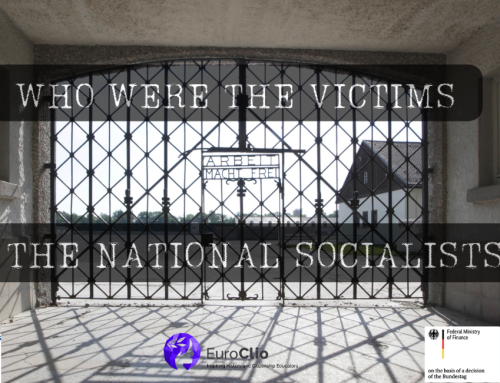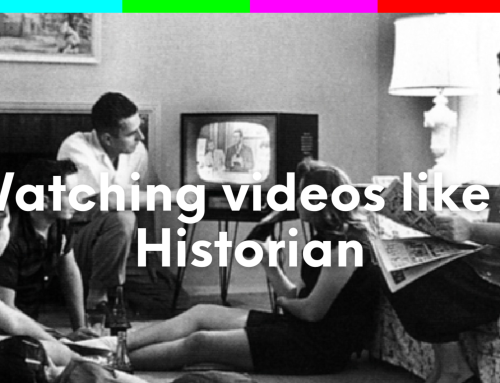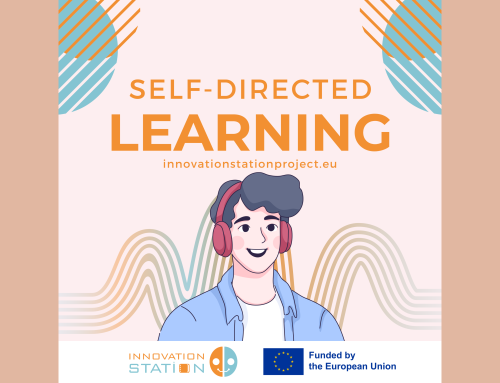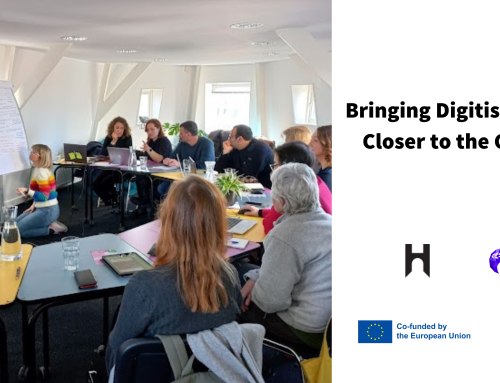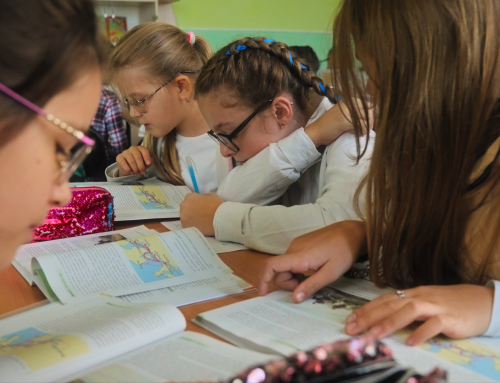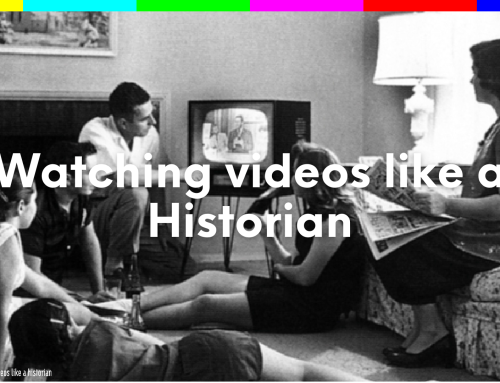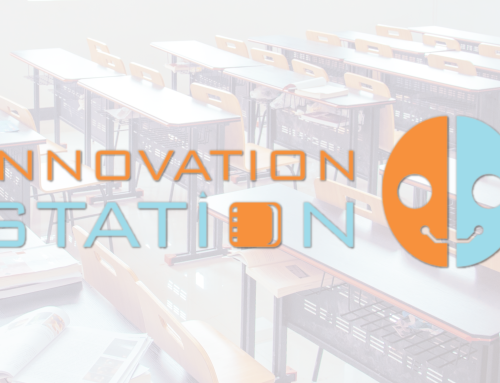As part of the Decisions and Dilemmas 3: making learning about the EU motivating and meaningful project, the second national training event was held on 18-20 May 2018 in Vidin, Bulgaria. As the event was organized over three days, multiple plenary and workshop sessions were held.
The program was opened on Friday with an official greeting from Mr. Vladko Valchev, expert on Social sciences and Civic education from Regional Direction on Education – Vidin. Following that, national project coordinator Bistra Stoimenova introduced the project to the participants, as well as parts of the Historiana “Changing Europe” unit and the main issues, learning options and resources. Following the introduction, a presentation on teaching about the EU from the House of European History was given by Petya Georgieva.
The following day, on May 19, two workshop sessions were organized. First workshop was given by Marino Maqueda, an international trainer from Spain, on Life and Leisure: the history of ordinary people – “I was a soldier in the German army” – How did WW2 affect the life of an ordinary teenage boy? This workshop used materials from a Historiana learning activity from the Changing Europe unit. The units are based on the two life stories of Igor Slaveć and Thomas Fidalgo Margazon, and throughout the workshop, the participants had to follow their paths in WWII and in the post-war period Europe, while comparing their stories and possibilities. The second workshop, titled Teaching history of communist past and civic education: tools, good practices and experience, was presented by Louisa Slavkova from the Sofia Platform foundation, and it showcased how educators can teach about the recent Bulgarian past and the communist regime in schools. During the workshop, several useful techniques on how to develop learning materials were presented. Discussion in the end of the workshop showed how the topic was sensitive and its dealings in the classroom could pose a challenge for educators.
Along with the workshops, Bistra Stoimenova organized a plenary session, where the results of the Teaching Europe research were presented, focusing on the way European integration is being taught in Bulgaria and other participating countries, by analysing school textbooks. Participants all agreed that the research helps to change “how” teachers can teach important, interdisciplinary topics.
The program was complemented by on-site learning activities. The town of Vidin allowed the participants to visit several historical sites, such as Baba Vida fortress, the Turkish konak and the mosque of Osman Nuri Pasha amongst others. As part of the trip, the Serbian town of Zaječar, along with its National Museum and the Archaeological site Felix Romuliana were visited.
On May 20, Petya Georgieva gave a workshop on Rising from the Ruins: Rebuilding Europe after World War Two. Following the activity, which consisted of participants role-playing as various historical figures, those participating were able to share their ideas on how best they can use the drama in the classroom.
At the end of the training, the last plenary session was organized on Teaching about a Europe without dividing lines. This is an online publication of the Council of Europe (“Shared Histories for a Europe without Dividing Lines”) This resource uses different methodologies of “shared histories” throughout several common topics in the history curriculum of states members of Council of Europe, such as Industrial revolution.
Overall, the event was quite a success. The workshops, materials and on-site learning provoked teachers to think critically on the educational content in the history curriculum. In a post-training evaluation, majority of participants agreed that the training provided them with useful networking opportunities as well as helped them improve and strengthen future cooperation.
The national training event was organized in cooperation with the Bulgarian History Teachers Association. The text and pictures are from the report written by Bistra Stoimenova.


